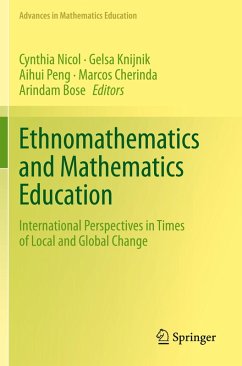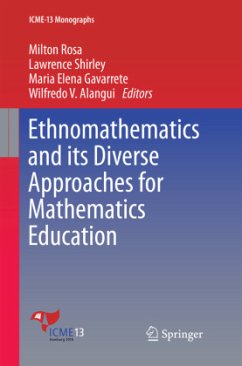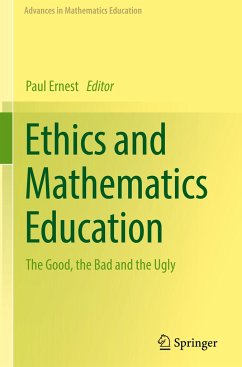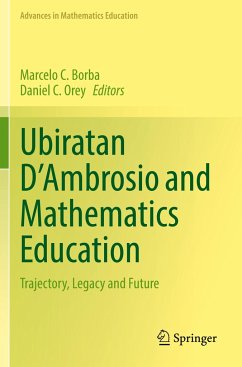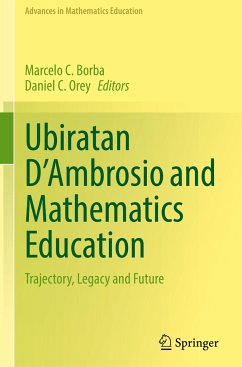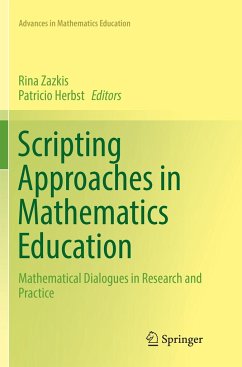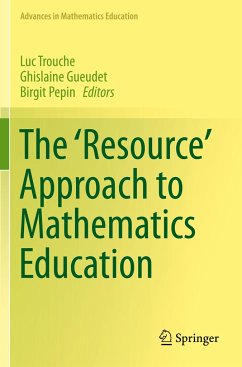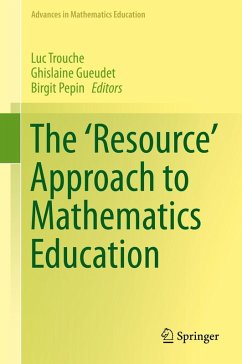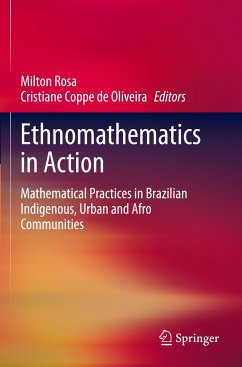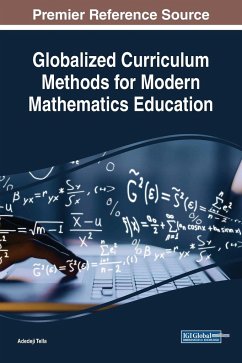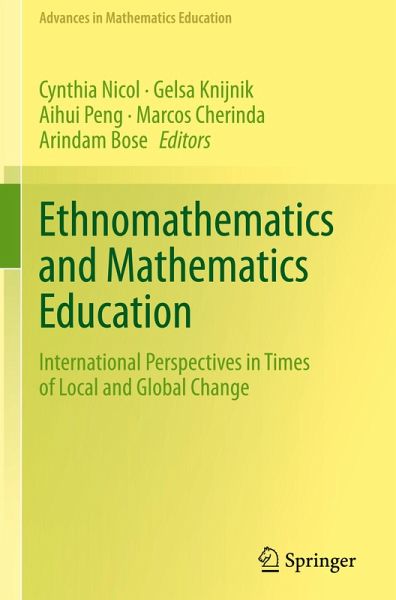
Ethnomathematics and Mathematics Education
International Perspectives in Times of Local and Global Change
Herausgegeben: Nicol, Cynthia; Knijnik, Gelsa; Peng, Aihui; Cherinda, Marcos; Bose, Arindam

PAYBACK Punkte
61 °P sammeln!
This edited volume examines ethnomathematics conceptions, pedagogical practices, and research from international perspectives in times of local and global challenges. The book explores connections between mathematical, cultural, political, and social practices toward more inclusive, holistic, creative, transdisciplinary and critical ways of engaging with knowledge and mathematical actions in society. In this edited book, the authors explore how ethnomathematics supports transformation of educational systems toward regaining cultural reclamation and self-confidence, challenges colonial logics f...
This edited volume examines ethnomathematics conceptions, pedagogical practices, and research from international perspectives in times of local and global challenges. The book explores connections between mathematical, cultural, political, and social practices toward more inclusive, holistic, creative, transdisciplinary and critical ways of engaging with knowledge and mathematical actions in society. In this edited book, the authors explore how ethnomathematics supports transformation of educational systems toward regaining cultural reclamation and self-confidence, challenges colonial logics for decolonizing and Indigenizing mathematics education, and engages with actions for critical and social justice issues.



